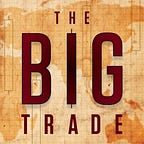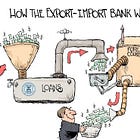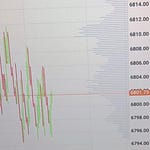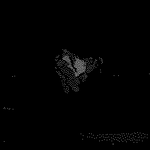I was listening to my conversation with John Perkins, discussing how debt is used to enslave countries. It’s been a long time since I spoke with John. I suspect that, post-2016, he may have had to rethink some of these ideas.
About 16 minutes into the conversation, I suggested to John that it seems like we are collecting from the poor in rich countries and giving it to the rich in poor countries, rather than multinationals or institutions like the EXIM Bank ‘enslaving’ nations or exerting significant economic hegemony on behalf of the U.S. taxpayer.
The very idea of these supposed public-private partnerships, or having to collaborate with many of the countries highlighted in the piece below, has frankly had a low ROI.
At the 18-minute mark, John cites how the Panama Canal Company became more efficient once it gained sovereignty from the United States. It’s interesting that, at the time, China was beginning to encroach on the canal. I raised my doubts about whether this was really the correct route back then, and this struggle highlights some of the conclusions I have arrived at today.
I think it’s important to say what I mentioned in a previous note:
Additionally, I feel vindicated that everything I’ve seen and felt is now coming to light. Even as recently as a year ago, these ideas were less prevalent, but now readers can see and understand more of what I have always been preaching. I saw the world through such an inverted perspective, and I do feel a sense of relief that it’s now being double-inverted into something positive.
When I listen to John speak, it reminds me of the thesis that the Boomer generation has been manipulated by narratives and the media for so long that, ironically, Generation Z—through the proliferation of social media—has been exposed to a wider range of ideas and possibilities, making them more open-minded. I think there may be some merit to this.
John Perkins, author of the book "Confessions of an Economic Hitman" was recently on The Big Trade Series. John first discusses some inside information related to the Panama Papers leak. Peter and John then delve into why and how some companies and people chose Panama as a tax heaven. The conversation then moves onto frontier and emerging markets and how some, especially China, mostly invest in infrastructure to grow the economy by using debt. They then turn their attention to Vietnam, and how it will become more a part of the global economic community through trade agreements like the Trans-Pacific Partnership. They also discuss Bolivia, a country with an uncertain economic and political situation.
April, 2016













